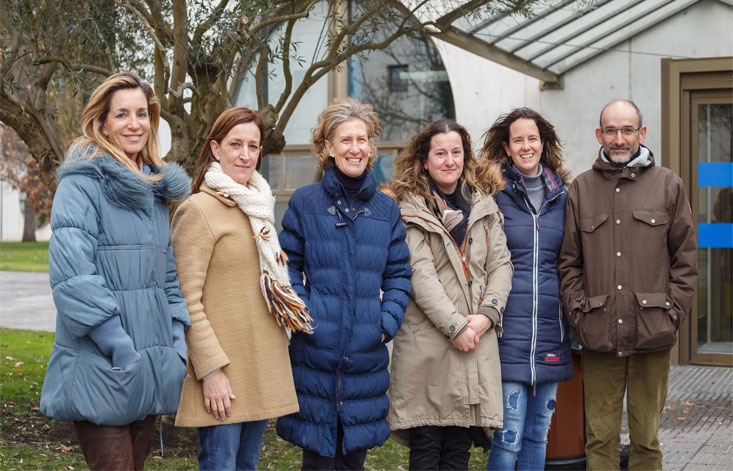- Inicio
- Actualidad
- Noticias
- UPNA leads the project with the largest budget from the European SUDOE programme
UPNA leads the project with the largest budget from the European SUDOE programme

27 septiembre 2018
Awarded €1.7 million, ‘Open2Preserve’ involves 13 partners from France, Spain and Portugal in the development of a sustainable management model for the care and maintenance of open mountain landscapes.
The project “Sustainable management model for the preservation of open mountain landscapes Open2Preserve” led by the Public University of Navarra, UPNA, through its Institute of Innovation and Sustainability in the Agrifood Chain, IS-FOOD, will receive 1.7 million euros from the European Regional Development Fund, FEDER, in the next three years. It is, therefore, the European SUDOE project for the period 2014-2020 that will receive the largest amount of the total of the 21 selected from 357 candidates submitted.
UPN professor and researcher, Rosa María Canals, is the Coordinator of an initiative that has a wide range of partners, comprising 13 beneficiary partners and 22 associates from three different countries (France, Spain and Portugal), which include universities, technological centres, foundations and other bodies.
Its objective: To put forward a sustainable management proposal for the mountain valleys currently facing intense change to their landscape due to rural exodus and changes introduced into traditional production systems.
It is carried out within the framework of priority axis 5 of the Interreg SUDOE Programme called “Protect the environment and promote efficacy of resources.”
As its promoters state, the aim is to connect the most current knowledge in different scientific fields (animal ethology, fire ecology, plant ecology, microbiology, soil science…) with the practical operation, in order to implement the most suitable and sustainable techniques that guarantee the preservation of the ecosystem services linked to open space with high natural value (livestock management, pyric herbivory, food quality, economic assessment…). To do so, it is proposed undertaking pilot experiences in abandoned and threatened high protection value areas (Places of Community Interest, Natural Parks and Biosphere Reserves) in Navarra, Andalusia, Catalonia, Galicia, Northern Portugal, Aquitania and Languedoc-Rosellón.
The entities associated with its development include, in the case of the Autonomous Community, different local organisations and companies encompassing natural park managements, breeder or shepherd associations, local meat entities or companies, among others.
Compartir:
#CalidadSuelosAplicacionesMedioambiente














